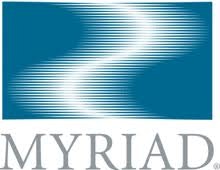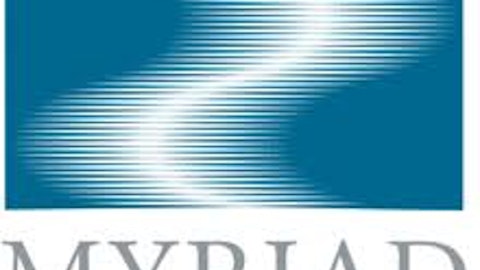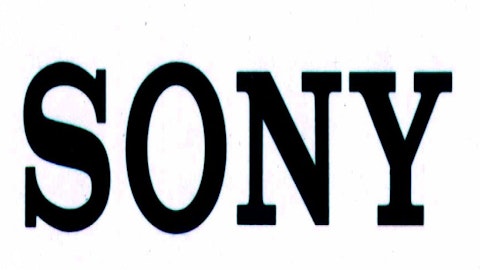
On June 30, the Supreme Court is going to make a decision on a case filed by the Association for Molecular Biology on human genome patentability against Myriad Genetics, Inc. (NASDAQ:MYGN), a $2.57 billion molecular diagnostic company.
What will happen to its stock price and profitability as the company’s patented genetic test for multiple therapies are challenged? This article addresses that question.
About the company
Myriad Genetics, Inc. (NASDAQ:MYGN) is a pioneer in predictive medicine, and a major part of its revenue comes from Molecular Diagnostic Testing (MDs). MDs primarily focus on hereditary risk associated with ovarian and breast cancer.
Historically, Myriad Genetics, Inc. (NASDAQ:MYGN) is involved in the discovery, development and marketing of novel products on transformative diagnostic tests. Most of its products are specifically developed to evaluate risks of various diseases, predict disease progression and reappearance, and guide possible treatment options in future.
As of now, Myriad has exclusive licensing rights for 523 claims under 24 patents in the US, especially for BRAC Analysis testing. This is a molecular diagnostic product used for analysis of BRCA1 and BRCA2 genes to evaluate a woman’s risk of developing hereditary ovarian and breast cancer. Most of these patents are likely to expire from 2014 onwards, except the last one, which will expire by 2029. These patents have multiple claims, including composition of matter related to BRCA1 and BRCA2 nucleic acids and their primers; and the methods of detecting mutations in the BRCA1 and BRCA2 genes for the diagnosis of ovarian and breast cancer, among other molecular diagnostic testing.
In May 12, 2009, the Association for Molecular Biology filed a lawsuit against Myriad Genetics, Inc. (NASDAQ:MYGN)’s 15 claims on human genome patentability specific to BRCA1 and BRCA2 genes, of which nine claims are still pending USPTO resolution. The dispute is whether human genes can be patentable or not, while Myriad argues that inventions are involved to determine gene functionality in the human genetic system, and are, therefore, patentable.
June 30, 2013 will be the judgment day for Myriad as the Supreme Court is expected to make a decision on the lawsuit.
Performance risk
If Myriad loses the lawsuit, then the company will face huge losses, especially in its molecular diagnostic segment. It is expected to lose the BRAC Analysis market potential that will contribute 78% of total MDs sales in 3Q13.
Figure 1:
 ,
,
Recently, Myriad reported an upward trend in revenue: sales were $156.7 million, a 21% upside in 3Q13 compared to the same period last year. The growth is primarily driven by two factors:
20% YoY increase in MDs sales, resulting from a rise in volume of BRAC Analysis, Colaris and Colaris AP and BART testing
25% YoY rise in companion diagnostic services (CDs), resulting from increased research collaboration
Again, in nine month periods, the revenue was $416.3 million compared to $344.9 million in the same periods last year, largely contributed (79%) by the molecular diagnostic segment. A negative Supreme Court decision will surely ruin it all for Myriad Genetics, Inc. (NASDAQ:MYGN).
Figure 2:

In addition, Diluted EPS was $0.46, up by 35% during 3Q13 compared to $0.34 during same period last year. In nine month periods, Myriad’s diluted EPS was $1.23, nearly 28% up in 9M13 compared to $0.96 in 9M12. While comparing to last three years, Myriad Genetics, Inc. (NASDAQ:MYGN) has shown a significant growth in EPS and this is expected to be high in FY13.
Figure 3:

If Myriad fails to defend the lawsuit, then the company is likely to experience fall in its earnings growth. Otherwise, the company is fairly valued, which is currently trading at a price of $32 with an estimated PE of 19.26.



